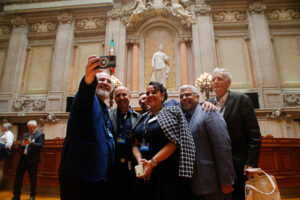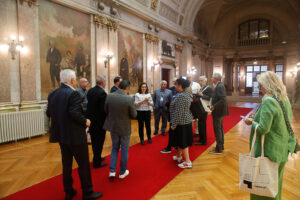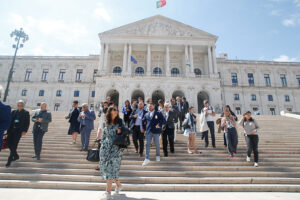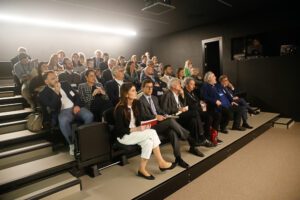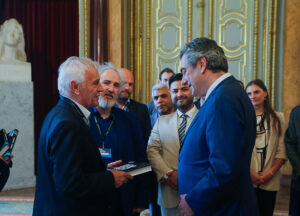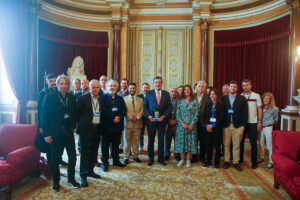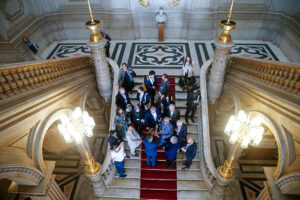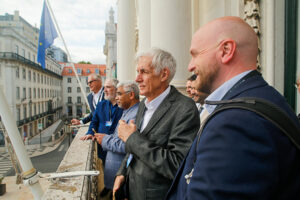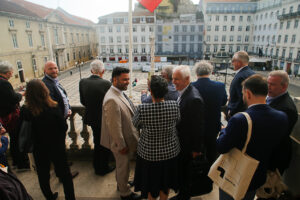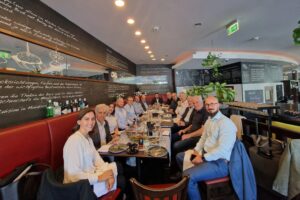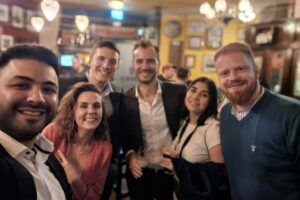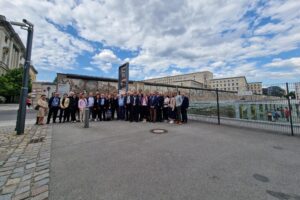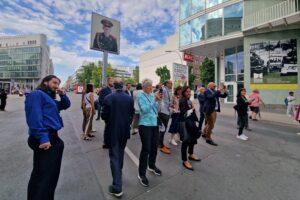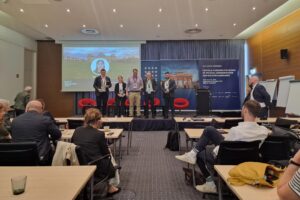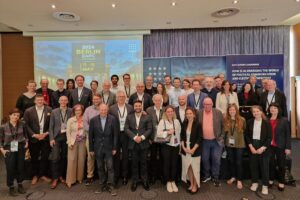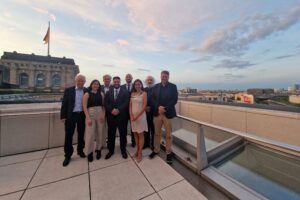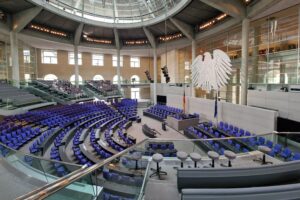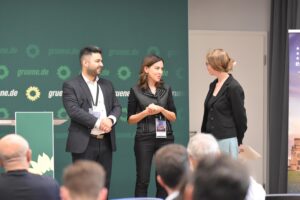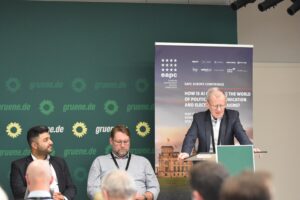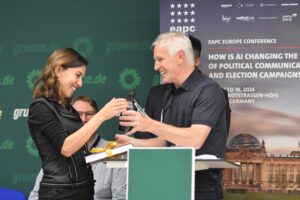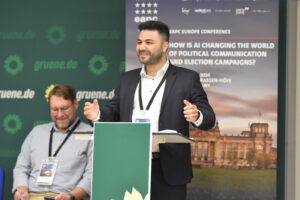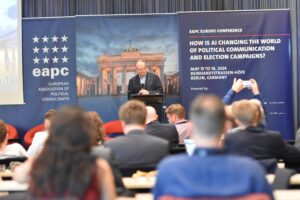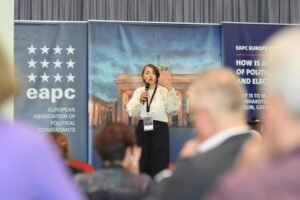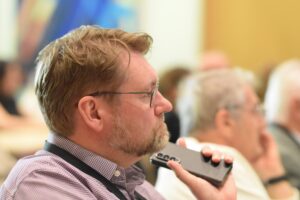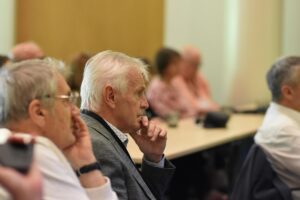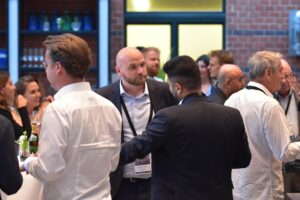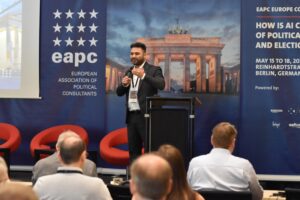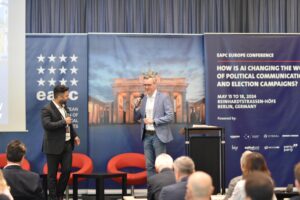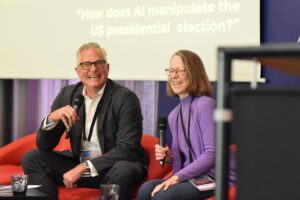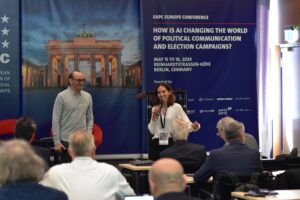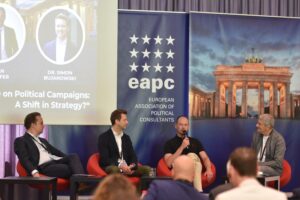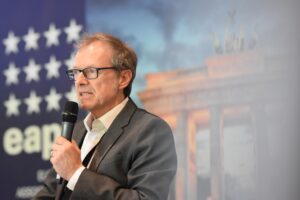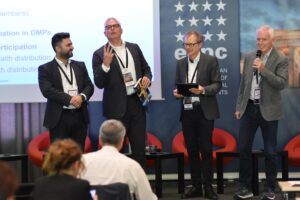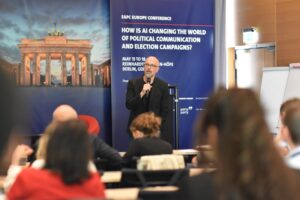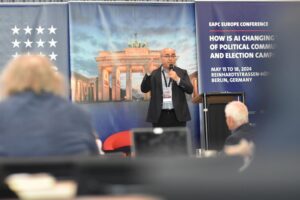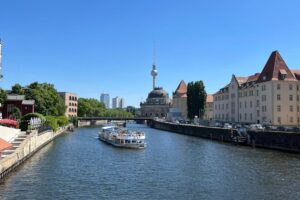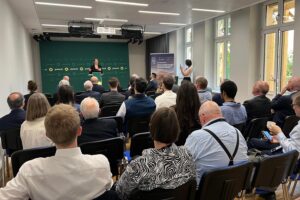EAPC Europe Conference 2025:
Great Speaker, great Program
The months leading up to the conference were shaped by the first actions of the new U.S. administration, which deeply unsettled the free world. The collapse of the Portuguese government in late February, the snap elections on May 18, and a blackout just days before the event turned preparation and organization into a massive challenge.
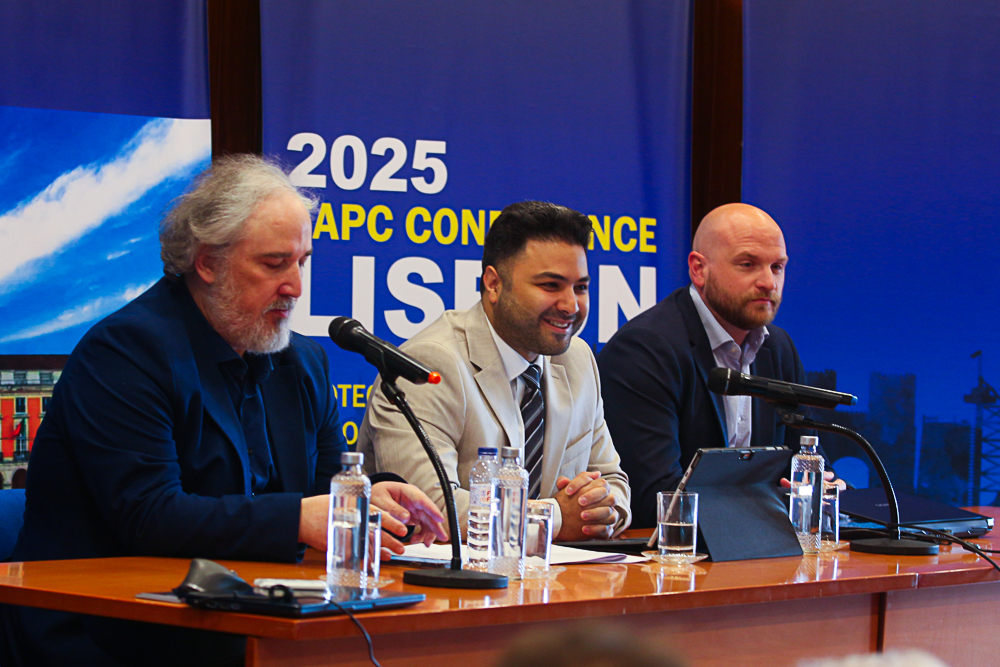
EAPC Board Meeting and
General Assembly as the Opening
As per tradition, the days in Lisbon began with the EAPC Board Meeting
and General Assembly. A highlight this time was the appointment of
Volker Riegger (Germany), Mehmet Ural (Turkey), Peter Frei
(Switzerland), Bo Krogvig (Sweden), Lojze Peterle (Slovenia), and Faye
and Greg Diamond (USA) as honorary members of the EAPC in
recognition of their exceptional contributions to the organization.
Additionally, the General Assembly voted to transfer budgetary authority
from the board to the assembly
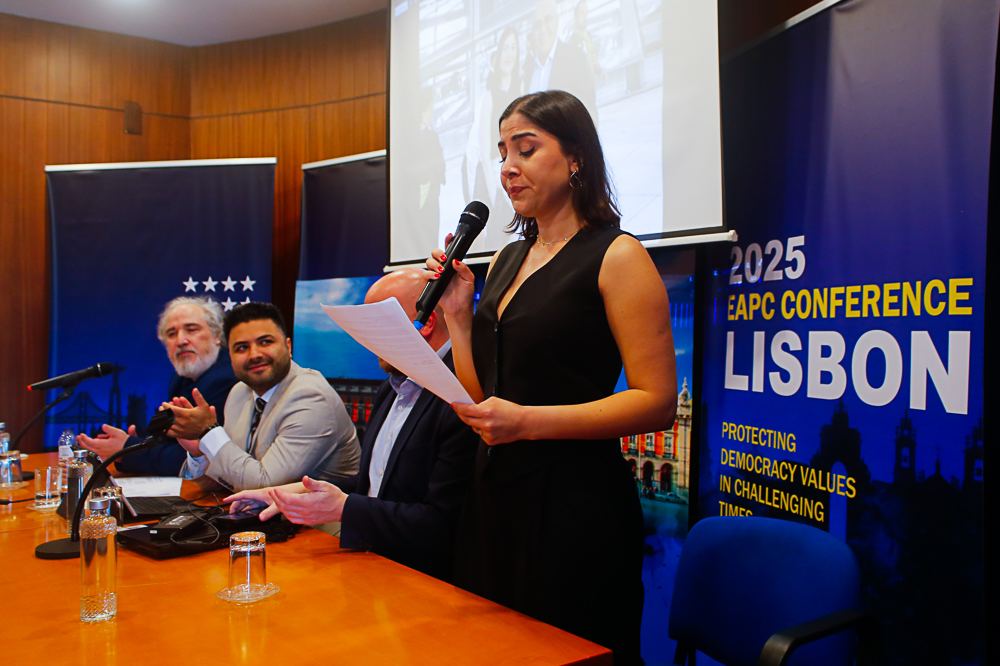
Opening Marked by the Events in Istanbul
The conference began with a somber note. Since March 19, former EAPC president Necati Özkan has been imprisoned along with Istanbul’s mayor
Ekrem Imamoğlu and over 100 others. His daughter, Selin Özkan,
delivered a personal message from Necati to the conference, which
deeply moved all attendees.
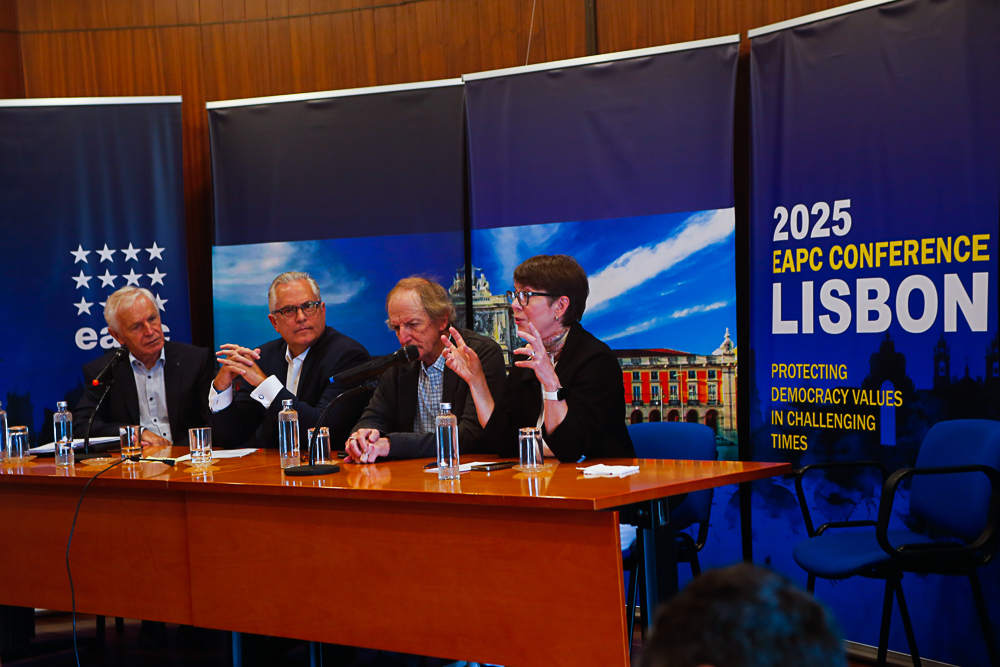
Opening Panel: “New U.S. Policy”
The first day of the conference started with a spirited panel discussion. Moderated by EAPC founder Sepp Hartinger, the panel featured
Republican Matt Klink (USA), Democrat Rick Ridder (USA), and Marie
Della Mattia (Canada), who debated the implications of the new U.S. administration’s early actions. While consensus was elusive, the discussion was marked by mutual respect and appreciation.
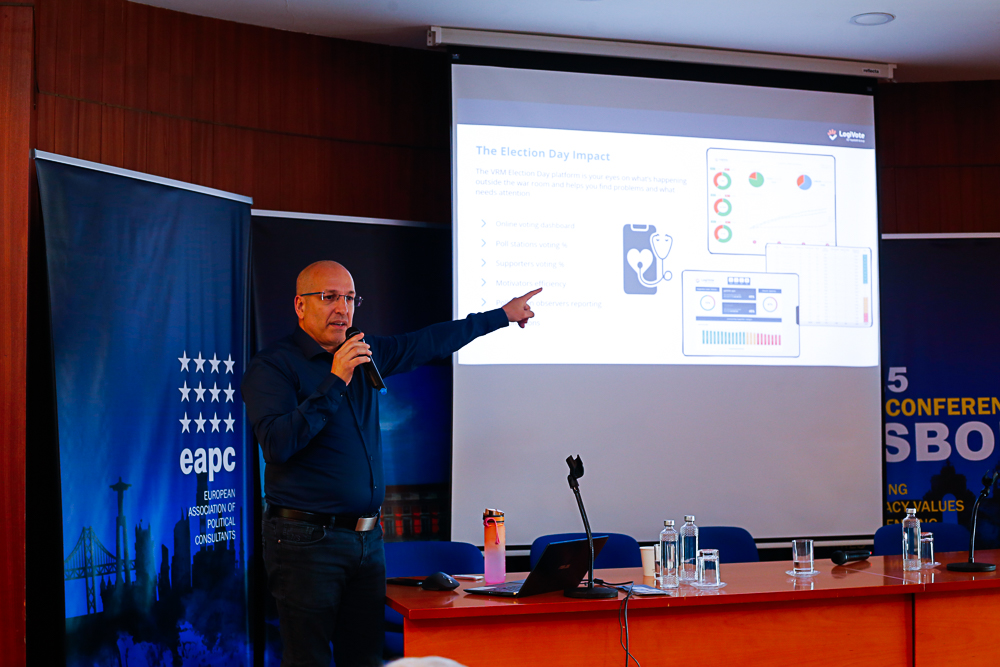
Rethinking Communication
The next session featured Yair Chen from LogiVote (Israel), who provided fascinating insights into AI-supported communication systems that simplify and significantly enhance citizen engagement.

Protecting Elections from Unfair Influence
The morning concluded with a panel on election interference, fake news,
vote-buying, and manipulation. Moderated by Hélène Masliah-Gilkarov
(France), the panel included EAPC Vice President Anthony Grally
(France), Alaa Garad from the University of Edinburgh (Scotland), and
Krešimir Macan (Croatia). The discussion emphasized the vulnerabilities
of democratic elections and called for greater transparency, open
communication, and independent media. A fresh mindset across the
entire field is needed to uphold high standards.
Parliament and City Hall Focus
The afternoon of the first day featured a visit to the Portuguese Parliament, including lunch and a guided tour, followed by a reception at Lisbon City Hall. Due to the early elections, a planned visit to the major political party headquarters for discussions on political communication had to be canceled.
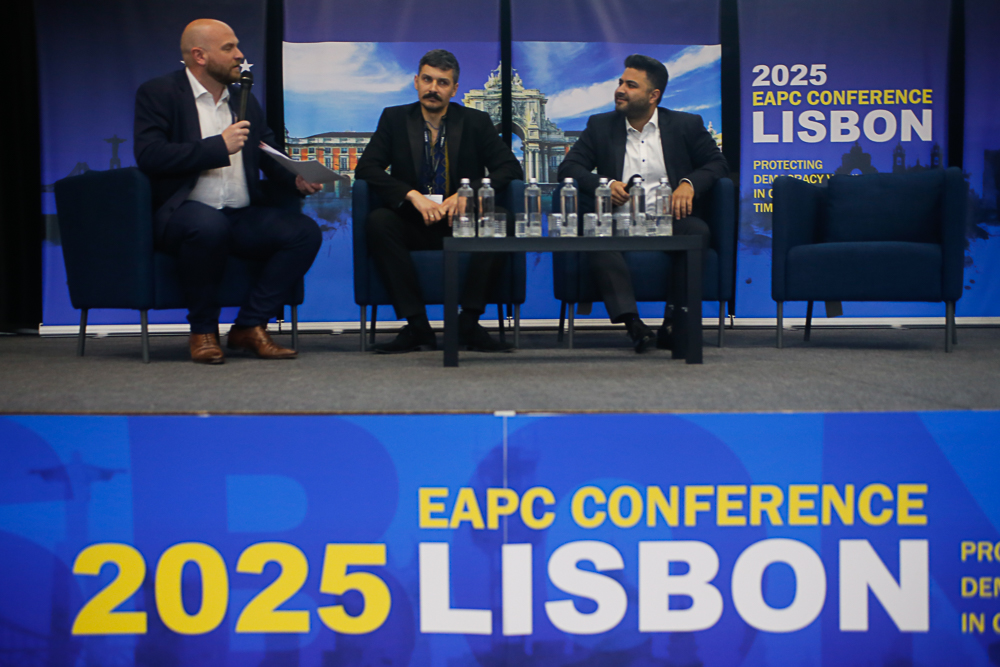
Are Free Elections a Challenge to Democracy?
This was the topic that opened the second conference day, with speakers
Andrii Krugaslov (Ukraine) and Luis Pablo Martins (Portugal), moderated
by Anthony Grally. The discussion addressed external election influence,
technical manipulation, vote-buying, and more.
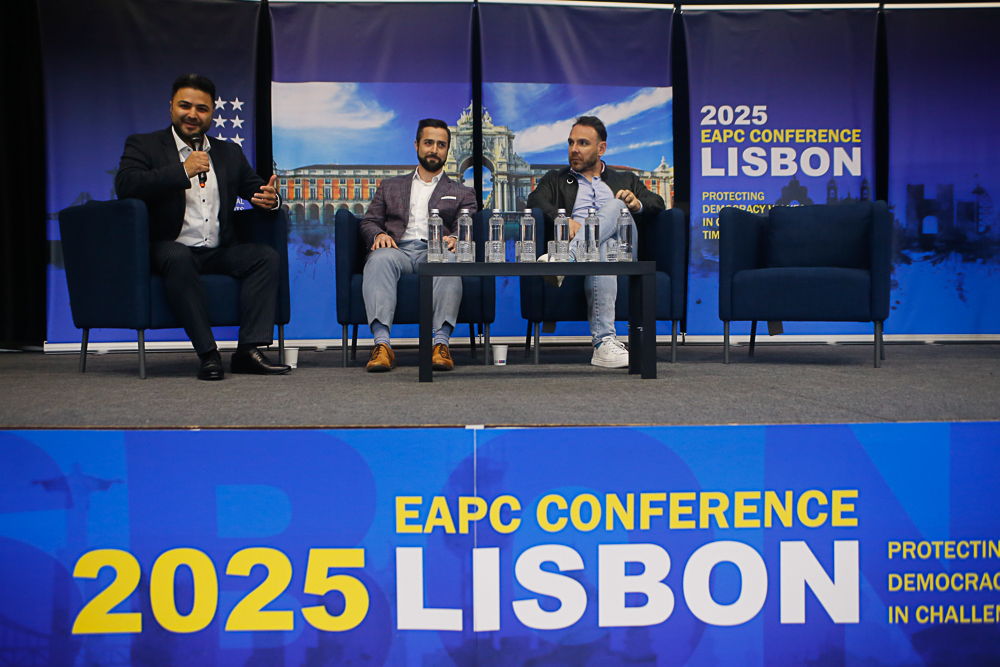
Technology Panel with Experts
“What opportunities do AI-supported technologies offer to improve and
deepen communication with citizens?” was the focus of this panel.
Moderated by EAPC President Reza Kazemi, panelists Alex Tarascio
(Sygnal, USA) and Ivan Ivanov (Bulgaria) presented exciting insights that
could significantly reshape future campaigns.
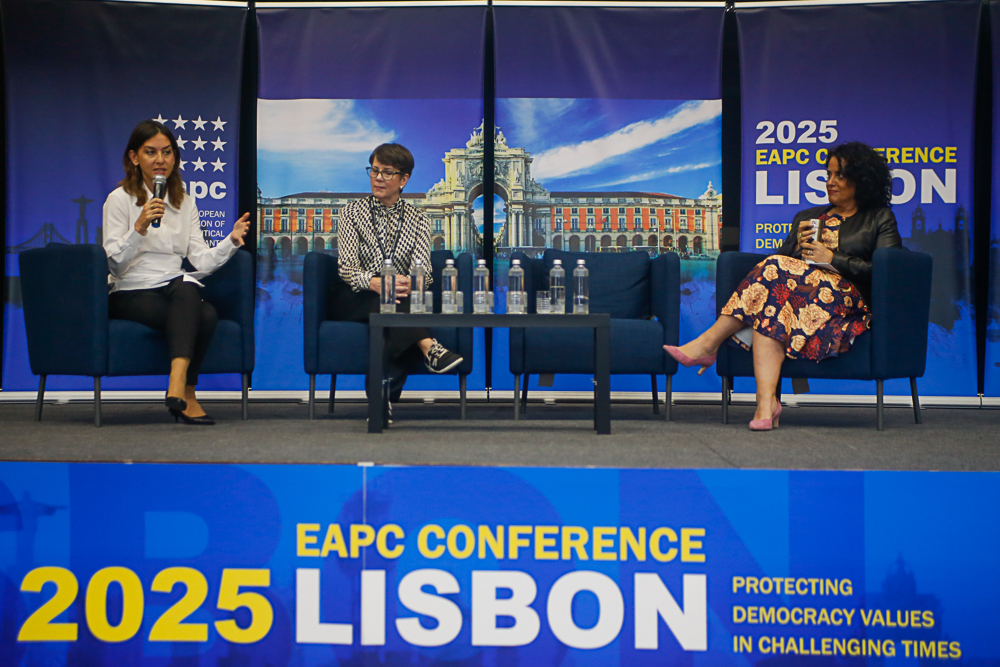
How to Stop the Impact of Populism
Is populism a threat to democratic values? How can its influence be
countered? In a panel moderated by past EAPC president Gülfem Saydan
Sanver (Turkey), Marie Della Mattia (Canada) and Hélène Masliah-
Gilkarov (France) explored different approaches, both strategic and in
terms of messaging. The conclusion: more intensive engagement with the
subject is crucial to neutralize populism’s impact.
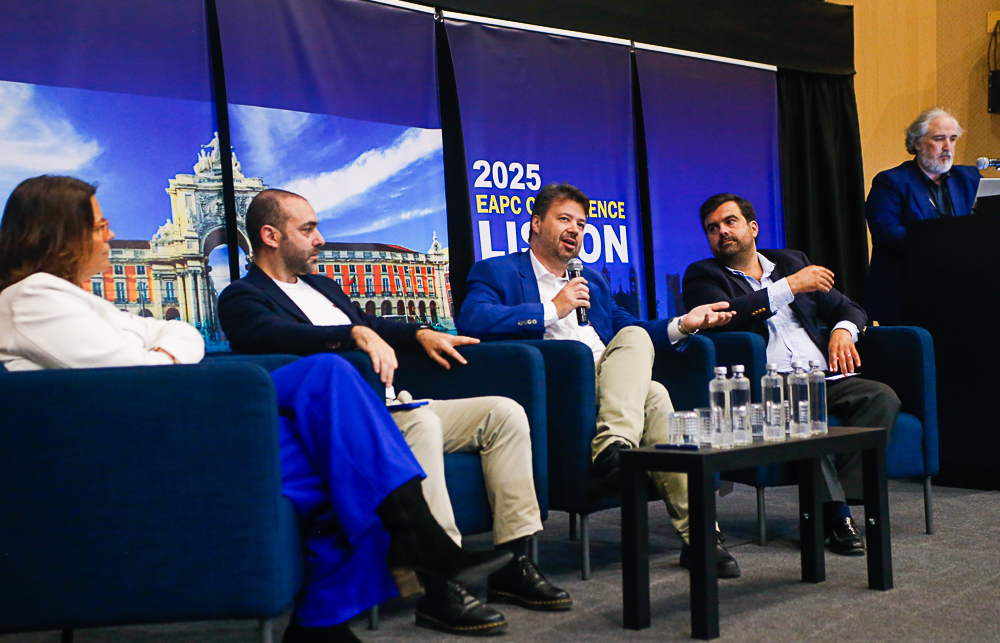
Defending and Safeguarding Democratic Values
Political consultants, campaign managers, and the entire political
communication sector have influence over every campaign. The goal
should be to reject unfair tactics and promote positive development. In
the closing panel, preceded by a keynote from Miguel Poiares Maduro
(Portugal), Sofia Aurelfano (Portugal), Marcello Vitorino (Brazil), Nuno
Silva Jorge (Portugal), and Fabiana Vitorino (Brazil) discussed recent
developments. Moderated by conference organizer Arnaldo Costeira (Portugal), the discussion highlighted the shared responsibility of all those who contribute to a functioning democracy.
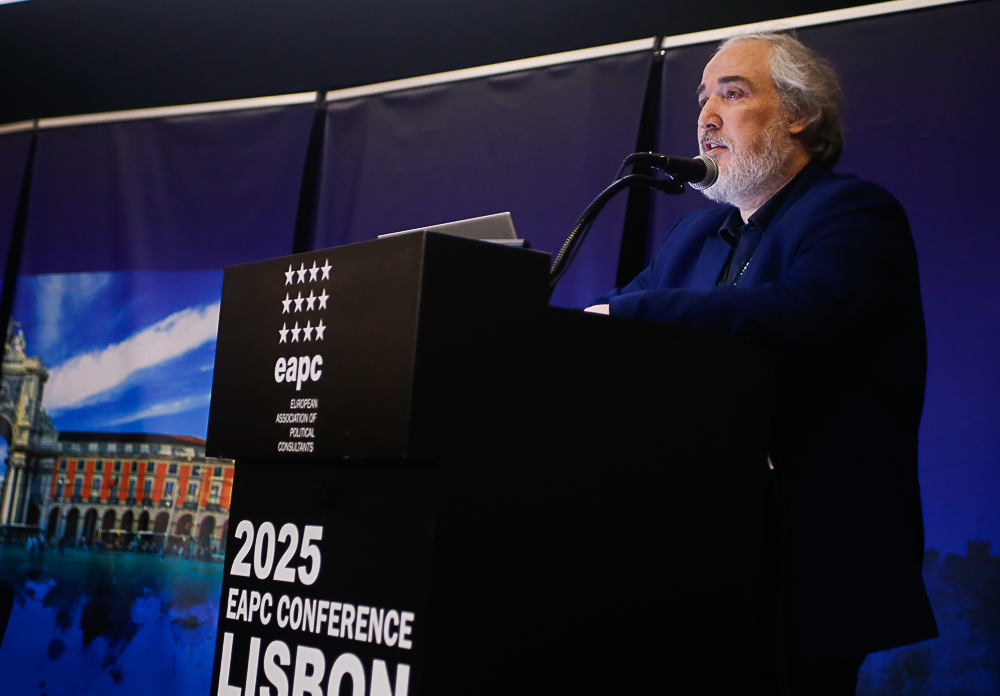
The “Lisbon Declaration” as the Grand Finale
The conference concluded with the adoption of the “Lisbon Declaration”,
a powerful appeal to uphold and protect democratic values, addressed to
all who bear political responsibility. The declaration was also the
centerpiece of the EAPC Gala Dinner, which hosted prominent guests
from Portuguese politics.

“Bienvenue à Paris 2026!”
A heartfelt thank you goes to Arnaldo Costeira as conference chair, to all
speakers, moderators, and participants. Lisbon was a wonderful
experience. Now, the EAPC family looks forward to the next gathering in
May 2026 in Paris, France.
EAPC Europe Conference 2024 in Berlin:
Summit meeting of experts
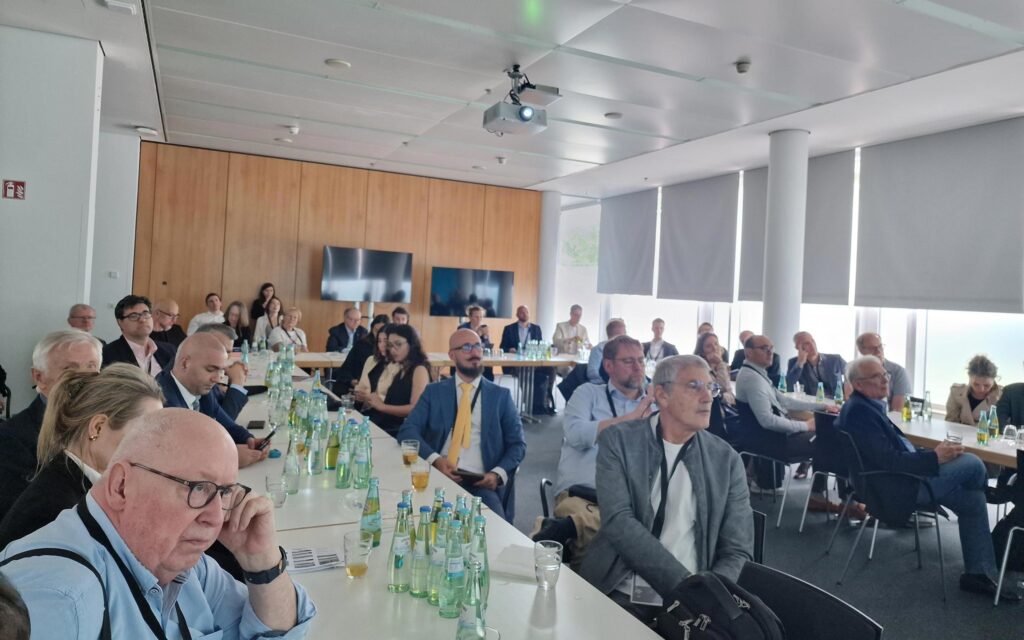
The 29th EAPC Europe Conference in Berlin/Germany featured a completely new format. For the first time in the history of the EAPC conferences, all four major German political parties were included in the program, which focused entirely on artificial intelligence. The conference was also characterized by excellent presentations from leading experts and a high level of interest.
Day One dedicated to the EAPC
In keeping with tradition, the first day in Berlin was dedicated to the association. In addition to a meeting of the Executive Board, the General Assembly of the EAPC was held at the headquarters of Bündnis 90 / Die Grünen, during which all EAPC bodies were newly elected. Reza Kazemi from Germany replaced Gülfem Saydan Sanver as President of the EAPC. Four new members were also elected: Anthony Grally, France, as Vice President and Hélèn Masliah-Gilkarov, France, Arnaldo Costeira, Portugal, Reinis Tocelovskis, Latvia. While the members of the team of auditors and the Code of Conduct Committee remained unchanged. Before the General Assembly, Emily Büning, Managing Director of Bündnis 90 / Die Grünen, gave an impressive presentation. A joint visit to the “Hall of Tears”, one of the most moving places from the communist era, and a cocktail reception for all participants in the conference center rounded off the program of the first day.
Day Two: Opportunities and risks of AI and interesting presentations in the Konrad-Adenauer-House
The second day began with exciting presentations by Mauricio Moura, Reinis Tocelovskis and Brent Buchanan, who outlined different perspectives on the development of AI in their contributions.
Carsten Reymann, Managing Director of the FDP, presented his view on AI and the upcoming European elections.
This was followed by Sabin Dima from Romania via Zoom, who, as one of Europe’s leading AI experts, inspired the participants with his latest findings, before new facets of AI were once again discussed in a panel discussion with Jan Töpfer, Carl Philipp Burkert and Simon Bujanowski under the moderation of Anthony Grally.
Necati Özkan concluded the morning with his presentation on the local elections in Turkey and the associated influence of AI.
The afternoon was dedicated to a visit to the CDU’s Konrad-Adenauer-House, where presentations on the European elections and the party’s membership service were on the agenda. This was followed by a sightseeing tour across Berlin, which ended with a visit to the DDR Museum.
Day Three: Conference kick-off at the German Bundestag
The first item on the agenda for the third day was a visit to the SPD parliamentary group in the Bundestag, combined with a presentation by Parsa Marvi, Member of the German Bundestag, before the conference continued at the Reinhardtstraßenhöfe conference center. The agenda included presentations by Matt Klink, USA, moderated by Faye Diamond, on the US elections. Prof. Sabine Köszegi, who was unable to come to Berlin due to illness, was connected via Zoom on the topic of “Does AI discriminate against women?” and attracted a great deal of attention.
Christoph Hofinger spoke on the topic of “Human Intelligence” and Ms. Engelhorn’s 25 million donation project, while Michael Reimon spoke on the topic of coaching in politics.
Finally, Tatjana Samsonowa-Denef’s presentation on “How can AI be controlled by AI?” attracted a lot of attention, before the official part of the conference concluded with the panel discussion “Are fair elcection campaigns possible in times of AI?” and the presentations by Dmitry Bolkunets, Christoph Hofinger, Torbjörn Sjöström and Marie Wutzler, moderated by Anthony Grally.
The 29th European Conference ended with a guided tour of the German government district and a gala dinner in the Käfer restaurant high above the German Bundestag.
The following day, there was also a special guided tour of the German Bundestag for all those who were still in Berlin.
At this point, a big thank you to all speakers, moderators, participants and especially to the sponsors of the conference Reimon, Cygnal, Time to Talk too, Hartinger Consulting, Wahlkampf Akademie, Campaigns & Technology, zaftrafund, Digiroadshow, Party Party and Reza Kazemi.
© 2026 - EAPC | Aneeq WordPress Theme By A WP Life | Powered By WordPress.org
You are currently viewing a placeholder content from Vimeo. To access the actual content, click the button below. Please note that doing so will share data with third-party providers.
More InformationYou are currently viewing a placeholder content from YouTube. To access the actual content, click the button below. Please note that doing so will share data with third-party providers.
More InformationYou need to load content from reCAPTCHA to submit the form. Please note that doing so will share data with third-party providers.
More InformationYou are currently viewing a placeholder content from Facebook. To access the actual content, click the button below. Please note that doing so will share data with third-party providers.
More InformationYou are currently viewing a placeholder content from Instagram. To access the actual content, click the button below. Please note that doing so will share data with third-party providers.
More InformationYou are currently viewing a placeholder content from X. To access the actual content, click the button below. Please note that doing so will share data with third-party providers.
More Information

